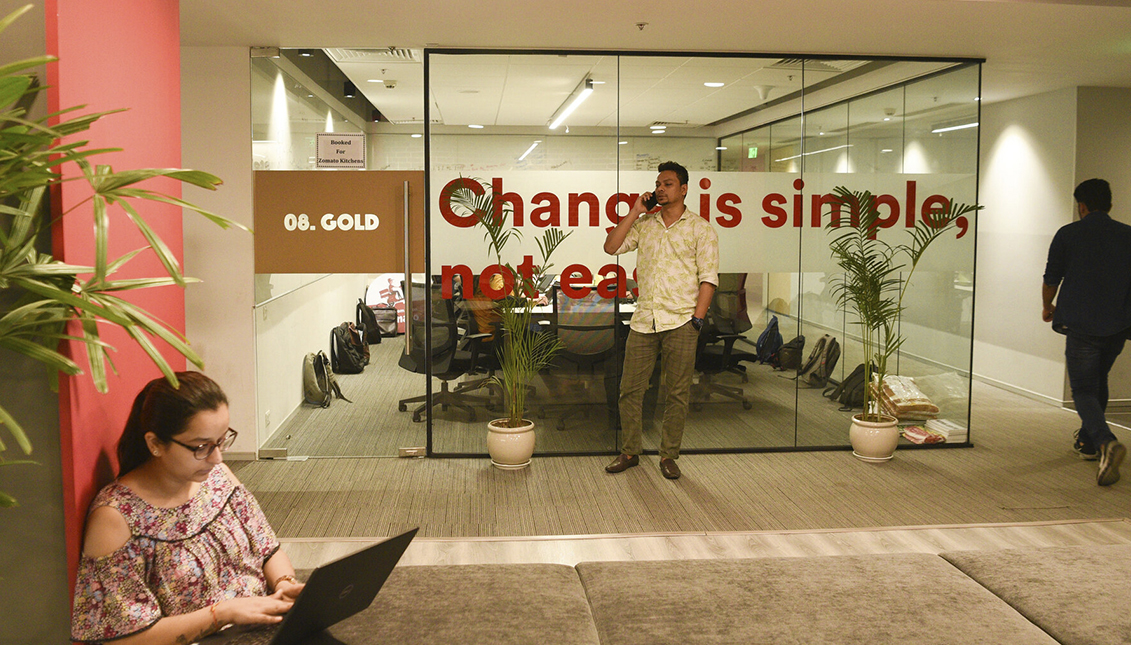
Some companies are finally starting to recognize that women menstruate
Indian company, Zomato, gives 10 days leave to its female employees for their periods, while the rest of us carry out our cyclical existence in a linear and…
When my mother was a teenager working in a textile factory in Spain, the week she had her period was spent with her hair dirty and covered with wool strands. Back then, it was said that it was harmful for a woman to take a shower if she had her period, so when they saw her arrive at the factory they would say, "Ah, she has 'the thing.'" Yes, they called it 'the Thing,' as if it was a monster from a B-movie.
We've come a long way since then. There are sanitary pads, tampons, menstrual cups, and even 'cults' of cycles for women like the Moon Mothers. But menstruation is still a big taboo, not only when we whisper to each other asking for a tampon, but also when we try to fit our hormonal cycles into companies that are run in a linear, hierarchical sense of a world designed for men.
In India, a country where many women are considered impure during menstruation and discriminated against for this reason — only 12% of the more than 330 million girls and women have access to sanitary towels or tampons and more than half have no adequate information — some courageous companies are challenging the stale and macho status quo.
Like Zomato, one of the largest delivery companies, whose CEO, Deepinder Goyal, has announced that it will give all its employees, both CIS women and transgender, 10 days a year off for their periods.
Yes, it may be a bit tight, but it's still a milestone that you can stay home on the worst day of the cycle, when nausea or bellyaches are unbearable, and not have to give any excuses or bullshit. You simply invoke your otherwise natural right to suffer a healthy monthly torture.
"At Zomato, we want to foster a culture of trust, truth and acceptance," Goyal said in a letter to his employees. "There should be no shame or stigmatization when applying for a period leave. They should feel free to tell their co-workers or bosses, or even in their automated email messages that they are on a 'period leave'."
The company, which acquired Uber's business in the country earlier this year, is not the first to introduce such a policy; however, it has the potential to set a huge precedent and break the stigma.
RELATED CONTENT
"This is part of life, and although we don't fully understand what women go through, we have to trust them when they say they need to rest," said the executive, who added that "I know that menstrual cramps are very painful for many women — and we have to support them in that if we want to build a true culture of collaboration at Zomato."
According to the executive, the company will ensure that women do not receive any "unnecessary harassment" or unpleasant "comments" from their male colleagues, since "it should not be uncomfortable for us."
It's a decision that has provoked a real debate on the social media between those who believe that 10 days is too little and those who denounce that the measure gives preferential treatment to women. There are also those who think that this kind of leave will increase gender discrimination in the workplace.
For Ranjana Kumari, director of the Centre for Social Research, an NGO that defends women's rights in India, Zomato's initiative is excellent news, though she admitted to CNN that some people may object that this kind of leave makes women look disabled and can make it difficult for them to get a job.
"We are women and we have to accept and respect — and make society accept and respect — who we are, and what happens to us as women," summarized Kumari. "This is our body and this is what happens to our body."
According to Addressing Menstruation in the Workplace: The Menstrual Leave Debate, at least half a dozen countries have implemented menstrual leave policies, such as Indonesia, where women can take two days off a month, or Zambia, where the day off is known as "Mother's Day," and also in the Mexican federal judicial system, where women have one day off.
The debate is still open: Are periods leave an advantage and a right that assumes our cyclical nature or a measure that is detrimental to our work?











LEAVE A COMMENT: